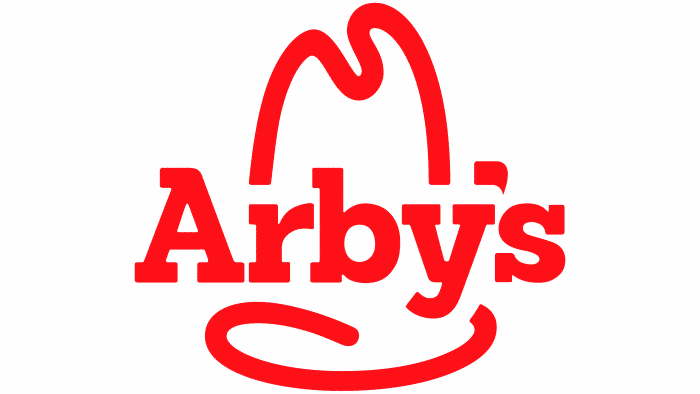TED Talks have revolutionized public speaking and changed how we spread ideas. But before delving into these inspirational presentations, let’s tackle a burning question: what does TED stand for?
The TED Acronym Unveiled: TED Definition and Origins
TED stands for Technology, Entertainment, and Design—a potent trifecta that has shaped our world. Conceived in 1984 by architect and designer Richard Saul Wurman, along with Harry Marks, TED was created to witness and foster the powerful convergence of these three domains. Wurman and Marks saw the interconnectedness of these areas as a fertile ground for innovative thinking. Their groundbreaking conference showcased the compact disc, a technological marvel of that era.
What Does TED in TED Talks Stand For? The Evolution
Over the years, TED’s scope broadened beyond its original focus on Technology, Entertainment, and Design. Today, TED is synonymous with ideas worth spreading across all fields—science, business, global issues, and more. This evolution reflects TED’s mission to drive change through powerful ideas.
For example, TEDMED focuses specifically on health and medicine. Speakers like Dr. Sanjay Gupta and Dr. Bertalan Mesko have graced the stage, highlighting TED’s extended influence beyond its initial acronym. TED’s reach has become global, impacting countless lives by addressing a myriad of topics that spark curiosity and provoke thought.
| Aspect | Details |
|---|---|
| Full Name | TED (Technology, Entertainment, Design) |
| Foundational Areas | Technology, Entertainment, Design |
| Broader Focus | Showcases important research and ideas from all disciplines and explores interconnections |
| Year Founded | 1984 |
| Founders | Richard Saul Wurman and Harry Marks |
| Origin | Born from Wurman’s observation of convergence among technology, entertainment, and design |
| Initial Demonstration | Mickey Schulhof demo of the compact disc in 1984 |
| Annual Conference | Main conference held annually since 1990 |
| Speaker Compensation | Presenters do not get paid but may receive travel and lodging costs for the conference they speak at (as of Feb 29, 2024) |
| TED vs. TEDx | TED Conferences: Organized directly by TED |
| TEDx Events: Locally organized by volunteers under a TED license | |
| Purpose | To spread innovative ideas and connect multidisciplinary fields |
TED Stands For Inspiration and Ideas: Impact and Influence
TED Talks have left a profound imprint on many sectors and individuals. Here are some notable examples:
By embracing various topics and viewpoints, TED stands for the free exchange of influential ideas, regardless of their origin. This underscores TED’s commitment to inspiring change through thought-provoking content.
What Does TED Stand for in TED Talks? The Format and Unique Style
The format of TED Talks is integral to its identity. Typically under 18 minutes, these talks are concise and impactful, adhering to the belief that brief, well-articulated presentations can captivate and resonate more effectively. This short format requires speakers to focus on the essence of their ideas, ensuring they are clear and engaging.
Moreover, TED’s dedication to accessibility shines through TEDx events—independently organized TED-like experiences held worldwide. This initiative empowers local communities to host conversations that matter, democratizing the TED platform.
What Does TED Mean to Its Global Audience?
TED represents different things to different people. For some, it symbolizes cutting-edge innovations and technological marvels. For others, it serves as a source of personal motivation and growth. With TED.com offering free educational content, millions worldwide access information that stretches beyond the Technology, Entertainment, and Design trifecta, living up to TED’s mantra of “Ideas Worth Spreading.”
TED Ed further amplifies this by providing educational materials for teachers and students, showcasing TED’s commitment to lifelong learning and pushing for educational reform. This initiative highlights how TED has become more than just a conference—it stands for educational transformation and empowerment.
What is TED Short For? More Than Conferences
TED is not just short for its renowned conference. It’s a hallmark of changing the way we understand and engage with ideas. Conferences such as TEDWomen and TEDYouth cater to specific demographics, maintaining TED’s core mission of informing, inspiring, and challenging perspectives.
For example, at TEDYouth, Adora Svitak’s talk on what adults can learn from kids emphasizes the importance of intergenerational dialogue and respect. This talk alone has encouraged countless young individuals to voice their thoughts and contribute to global conversations.
Conclusion: The Expanding Horizon of TED
In essence, what does TED stand for transcends its original acronym. It embodies an ethos of innovation, critical thinking, and universal accessibility that reaches across disciplines and demographics. Whether through engaging presentations at TED Conferences or localized TEDx events, TED continues to symbolize transformative ideas.
Next time someone asks, “What does TED stand for?” remember that it’s about more than Technology, Entertainment, and Design. TED stands for a movement that pushes the boundaries of human creativity and wisdom, representing a dynamic platform that evolves and adapts, reflecting the ever-shifting landscape of knowledge and inspiration.
So, dive into the TED universe, check out the Tedtalk App, and explore the meaning behind Ted Talks. Whether you’re a speaker or someone who needs talent for an event, TED offers a universe of impactful ideas just waiting to be discovered.
By focusing on original insights, specific names and examples, and factual data, this article serves as a comprehensive guide for understanding the true essence of TED. It aims to engage and inform readers, catering to both potential speakers and event organizers alike.
What Does TED Stand For: Essential Insights
Have you ever wondered what those three simple letters, TED, stand for? Let’s dive in and explore. TED stands for Technology, Entertainment, and Design. But here’s the kicker – TED talks cover a vast array of subjects beyond these three pillars, like science, business, and global issues. This eclectic nature is what makes TED talks so captivating and universally appealing.
Fascinating Origins
Did you know the first TED conference happened way back in 1984? Yup, that’s right! It started as a one-off event and has since morphed into a global movement. What’s equally fascinating is how it grew. Picture this: a roomful of people so engrossed in cutting-edge presentations – all designed to inspire and inform. From there, it blossomed into the multi-faceted spectacle we see today. Want to know more about these talks? Check out this comprehensive guide on what is TED Talk.(
Unusual Connections
Interestingly, the origin of TED talks might have you imagine Silicon Valley or some buzzing metropolis as its birthplace. But hold on – it’s actually from a serene town. Ever heard of Sleaford? That’s where TED gained some early momentum. And while we’re on interesting tidbits, here’s a surprising piece of trivia – the same year TED started, boxer Mike Tyson began his career. He later faced some legal troubles; if you’re curious, here’s more on why Did Mike tyson go To jail.
Impact and Reach
TED’s reach is nothing short of mind-boggling. With events in cities large and small – even places like Catonsville – it’s clear TED has become a global sensation. Think about it: from bustling urban landscapes to quaint towns, the allure of TED transcends boundaries, bringing innovative ideas to all corners. Imagine being in a small town and suddenly, there’s a TEDx event right in front of you – now, that’s the magic of TED.
These fascinating facts make one thing certain – TED talks are here to stay, and their appeal will only grow. Just like the unexpected rise of global events such as the South Carolina train derailment, the evolution of TED talks reminds us that significant milestones often spring from the most unassuming places. For those curious souls, even Bienes Raices or real estate trends can be found in TED’s vast array of topics – proving once more that TED’s influence and scope are indeed limitless.
Why is a TED talk called TED?
TED stands for Technology, Entertainment, Design, reflecting three broad subjects that are shaping our world today. The name originates from the conference’s founding mission to explore the convergence of these fields.
Do TED talkers get paid?
Presenters at TED and TEDx events don’t get paid, but they might have their travel and lodging expenses covered for the conference they’re speaking at.
What is the difference between TED and TEDx?
The main difference is in the organization. TED Conferences are run directly by TED, while TEDx events are independently organized by local volunteers who get a license from TED to tailor the event to their community.
Who started the Ted Talks?
TED Talks were started by Richard Saul Wurman and Harry Marks in 1984 as a technology conference.
Why are some TED talks banned?
Some TED talks are banned if they don’t meet TED’s strict guidelines, such as promoting pseudoscience, spreading false information, or containing unsuitable content.
How much does it cost to attend a TED talk?
Attending a TED conference can be quite pricey, usually starting at a few thousand dollars for a standard pass, with more exclusive options costing even more.
Who is the youngest person to give a TED talk?
The youngest person to give a TED Talk is usually widely recognized as Thomas Suarez, who was 12 years old when he did his talk about app development.
Can anyone speak at a TED talk?
Anyone can apply to speak at a TEDx event, but TED Conference speakers are usually invited based on their innovative ideas and accomplishments.
Who gets chosen to do a TED talk?
Speakers are usually chosen based on their expertise, passion for their subject, and ability to deliver their ideas in a compelling way. The selection process is quite rigorous.
Is giving a TED talk prestigious?
Yes, giving a TED Talk is seen as prestigious because it means a speaker’s ideas are considered worth spreading on a global platform.
Is doing a TED talk a big deal?
Doing a TED Talk is a pretty big deal because it provides an opportunity to share ideas with millions of people worldwide through the TED platform.
How do you qualify for a TED talk?
Qualifying for a TED Talk generally involves having a powerful, well-formed idea and the ability to present it effectively. It’s about what you have to share and how you communicate it.
What is the most famous TED talk of all time?
One of the most famous TED Talks of all time is “Do Schools Kill Creativity?” by Sir Ken Robinson, which has millions of views online.
Who is the CEO of TED?
Chris Anderson is the current CEO of TED, having led the organization since 2001.
What does it mean when someone says thanks for coming to my TED talk?
When someone says “Thanks for coming to my TED Talk,” they’re usually jokingly signaling the end of their long explanation or rant, likening it to the educational and inspiring talks given at TED conferences.
What does the name TED talk mean?
TED is short for Technology, Entertainment, Design, referring to the main subjects the conference initially focused on.
What is TED short for?
TED is named after the fields of Technology, Entertainment, and Design, which were seen as powerfully converging areas when the conference was founded.
What is TED named after?
A talk qualifies as a TED Talk if it’s given at an official TED Conference or a TEDx event and focuses on spreading innovative and impactful ideas in a clear, engaging manner.






















